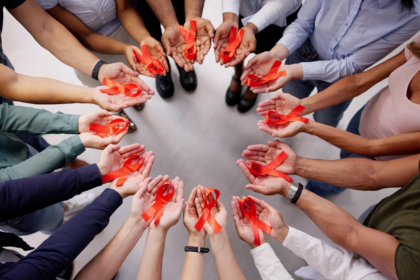 The dialogue around race and heterosexual HIV transmission has been pretty brutal in its messages to and about black women. The alarming statistics about new HIV cases and AIDS deaths have led to plenty of speculation about black culture, and specifically what is it about the behavior of black women that puts us at higher risk for contracting the virus.
The dialogue around race and heterosexual HIV transmission has been pretty brutal in its messages to and about black women. The alarming statistics about new HIV cases and AIDS deaths have led to plenty of speculation about black culture, and specifically what is it about the behavior of black women that puts us at higher risk for contracting the virus.
It turns out that when it comes to HIV risk for heterosexuals, including black female heterosexuals, race is not a factor at all. Last week, the Centers for Disease Control and Prevention reported that income and education are the major predictors of HIV risk among inner-city heterosexuals. The only factor more influential in HIV transmission than economic status is having been previously diagnosed with a sexually transmitted disease such as chlamydia, gonorrhea or herpes.
“When you look at the heterosexual epidemic throughout the United States, there hasn’t been an overly large impact,” says Dr. Paul Denning of the CDC’s Division of HIV-AIDS Prevention. “The epidemic is highly focused in certain communities.” Denning and his team found that, contrary to the racial disparities previously reported, there was no difference in contraction rates of the virus based on race. Poor heterosexuals of every ethnicity in 24 urban cities were up to 20 times more likely to contract HIV than the rest of the U.S. population.
Even when examining other high-risk behaviors like crack cocaine use and exchanging sex for money or drugs, income and education remained the stronger predictors.
Men who have sex with men and intravenous drug users (considered the highest-risk populations) were excluded from the study.
Care should be taken in applying these findings to our individual lives. As with any study, this is about what the data indicate are higher risk factors. This does not mean a middle-class, educated black woman will not contract HIV if she participates in risky sex — it may mean she is less likely to do so.
Rather than undermining the focus on prevention for black heterosexual women, Denning says the study’s findings will help focus HIV prevention efforts on the vulnerable, low-income communities that are being hardest hit.












